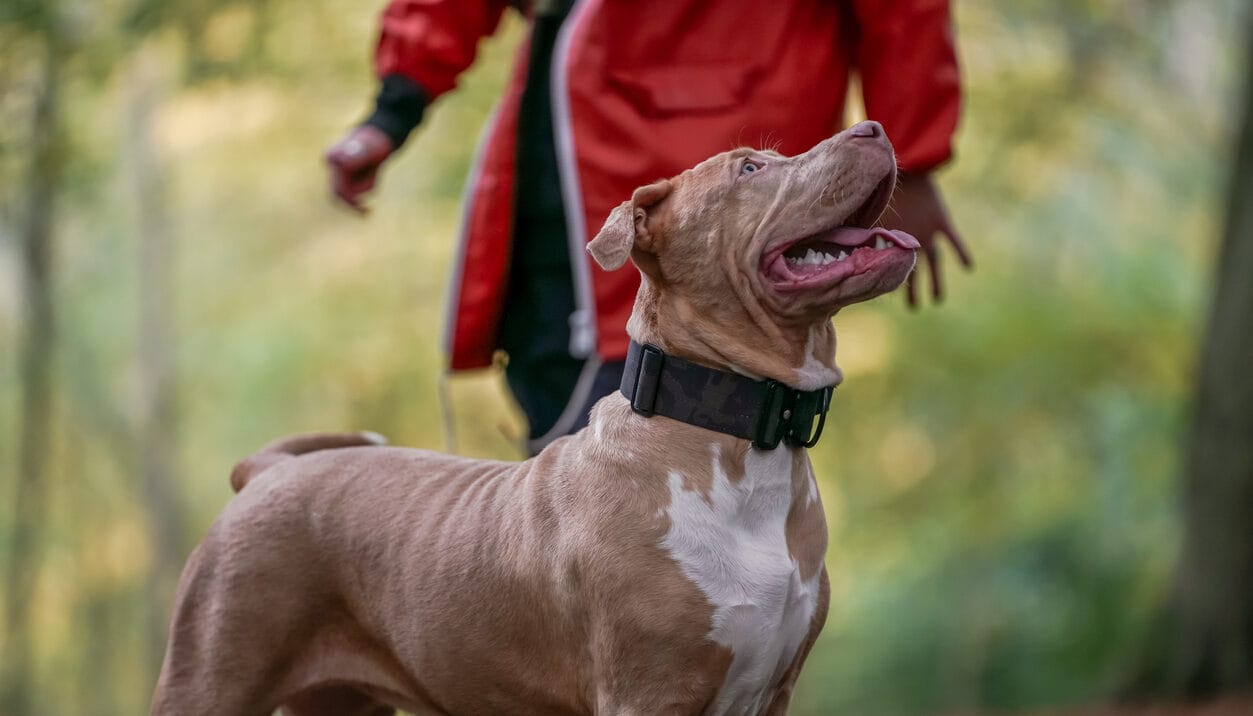Rishi Sunak announced last week that American ‘XL Bully’ dogs would be banned in the UK after a spate of attacks were linked to the breed.
The dogs will be restricted under the UK Government’s Dangerous Dogs Act 1991, a piece of legislation that aims to stop ownership of breeds which are considered to pose a threat to the public.
There have been various claims and counterclaims from campaign groups about the dangers of the breed, and whether a ban was proportional or likely to be effective.
Ferret Fact Service looks at the evidence.

What are XL Bully dogs?
The XL Bully is the largest of the American Bully breed, which developed from the American Bull Terrier. It is a cross-breed and has elements of the American Bulldog, English Bulldog, and Olde English Bulldogge. It has been recognised as a breed by the American Kennel Club but not in the UK.
It is thought to have first been bred in the 1990s. Different variations of the American Bully include classic, pocket, standard, and extra-large, known as XL. The XLs can weigh more than 60kg.
They are thought to have first been brought to the UK in 2014 or 2015.
What is the government going to do?
After a series of attacks on humans were linked to the XL Bully dogs, Rishi Sunak announced that the UK Government was taking action to restrict them.
In a statement, the government stated that the dogs will be added to the list of dogs prohibited by the Dangerous Dogs Act 1991.
To do this, a panel of experts would be sought to identify and define the XL bully type, using physical characteristics rather than DNA or parentage.
Once this has taken place the type will be added to the prohibited list, and it will be an offence to “own, breed, gift or sell an XL bully”. Ministers said this would come into force by the end of 2023.
What is the Dangerous Dogs Act?
The Dangerous Dogs Act was introduced after a series of media reports of attacks, with coverage focusing mainly on American pit bull terriers. It made it illegal to own, sell or breed four breeds of dog: the Pit Bull Terrier, the Japanese Tosa, the Dogo Argentino, and Fila Brasileiro.
XL Bullys would be included on this list if government plans go ahead.
Which dogs cause the most injuries and deaths?
There is no official data available on the types of dog which cause the most injuries or deaths.
Bully Watch, a pressure group which was formed in “response to the growing number of victims of Bully XL and large Bully attacks” has catalogued instances of reported dog attacks. In 2023, of 841 attacks it catalogued, it claimed 341 were from American Bully varieties including the Bully XL.
However, this data should be treated with caution. It relies on reported dog attacks which have appeared on social platforms like Facebook and NextDoor, and in the media. This means the statistics are incomplete and likely to be poorly balanced.
Statistics on fatal dog attacks have been collected by National Records of Scotland and The Office For National Statistics. In Scotland between 2013 and 2021, there were two deaths caused by fatal dog attacks registered. In England and Wales this figure was 30.
Are certain breeds more aggressive than others?
Evidence on whether different breeds of dogs are more prone to aggressive behaviour is mixed.
A 2022 study found that on average, only nine per cent of behavioural differences between dogs can be explained by genetic breed differences. It concluded that dog breed is generally a poor predictor of individual behaviour.
A separate study in 2019 looked at overall differences between breeds, and found some behaviours such as aggression and fearfulness can be linked to breeds.
Larger dogs are likely to be overly represented in statistics regarding dog attacks due to their strength and power, making them more likely to cause serious damage if they attack a person or another dog. These are generally more likely to be reported in the media.
Ferret Fact Service (FFS) is a non-partisan fact checker, and signatory to the International Fact-Checking Network fact-checkers’ code of principles.
All the sources used in our checks are publicly available and the FFS fact-checking methodology can be viewed here.
Want to suggest a fact check?
Email us at factcheck@theferret.scot or join our Facebook group.
Photo credit: iStock/Damien Platt.













